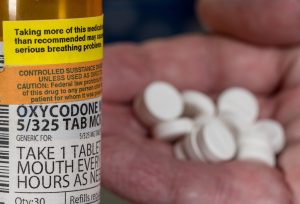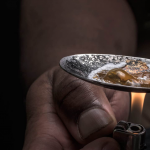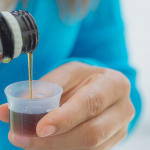Oxycodone addiction is hard to treat but not impossible. The most crucial decision you can make as you embark on recovery is to seek oxycodone addiction treatment, which makes the process safer and easier. The best oxycodone addiction treatment usually starts with medical detox followed by an outpatient or inpatient program, then combined with mental health therapy/counseling and support to achieve lasting sobriety.
If you are suffering from oxycodone addiction and do not seek treatment, the repercussions can be destructive. The affected individual tends to withdraw from others socially as they go deeper into their oxycodone addiction, affecting all areas and relationships in their lives. There can be family and relationship issues and trouble focusing at work or school, leading to financial problems and unemployment. The longer the oxycodone addiction persists, the more susceptible the user becomes to suicidal ideation and self-harming behaviours. The good news is that there is always oxycodone addiction treatment and rehab facilities to address all these problems through comprehensive care to help address the addiction.
 When looking for oxycodone addiction treatment, make sure you go for a certified opioid treatment program (OTP), which is regulated federally and required to follow specific guidelines. These facilities should provide medical detox to aid the recovering user with the oxycodone withdrawal process. Each person will undergo assessment on a case-by-case basis because everyone’s needs for oxycodone addiction treatment will vary. Some users might need extra supplements or drugs to recover, while others are better off with the tapering approach.
When looking for oxycodone addiction treatment, make sure you go for a certified opioid treatment program (OTP), which is regulated federally and required to follow specific guidelines. These facilities should provide medical detox to aid the recovering user with the oxycodone withdrawal process. Each person will undergo assessment on a case-by-case basis because everyone’s needs for oxycodone addiction treatment will vary. Some users might need extra supplements or drugs to recover, while others are better off with the tapering approach.
Another crucial aspect of OTPs is the prospect of using medication-assisted therapy (MAT). This involves using alternative drugs such as Methadone, Vivitrol, or Suboxone to replace Oxycodone for those struggling with addiction. After completing medical detox, the patient can participate in a substance abuse treatment program which includes medical treatment, counseling, education, and vocational services to promote long-lasting recovery.
After going through Oxycodone addiction treatment, there is the option of aftercare planning which includes being connected with transitional housing, sober living facilities, outpatient treatment services, and community resources. An OTP can provide the necessary treatment to cater to each patient’s unique needs according to the specific regulations provided by the federal government.
Medical Oxycodone Detox
Oxycodone alters the body and the brain’s chemistry such that the user adapts to the presence of the drug. When they stop using the drug, the body stops functioning normally since it is used to having the drug, resulting in withdrawal symptoms. It can be challenging to get through Oxycodone withdrawal comfortably and safely, so recovering users are always advised to detox under medical supervision. This is why recovery treatment facilities provide medically-supervised detox to increase the patient’s likelihood of attaining sobriety.
Inpatient Addiction Treatment
 Inpatient rehab facilities that provide medical detox services can be beneficial to recovering users suffering from severe to moderate oxycodone addiction. Most former oxycodone users usually state that the initial 4-5 days of the withdrawal process are the most physically challenging. Afterwards, it becomes emotionally and mentally challenging to stay clean. After medical detox, the patient will need to learn how to function without Oxycodone by getting over the psychological aspect of addiction.
Inpatient rehab facilities that provide medical detox services can be beneficial to recovering users suffering from severe to moderate oxycodone addiction. Most former oxycodone users usually state that the initial 4-5 days of the withdrawal process are the most physically challenging. Afterwards, it becomes emotionally and mentally challenging to stay clean. After medical detox, the patient will need to learn how to function without Oxycodone by getting over the psychological aspect of addiction.
Inpatient rehab provides a controlled and structured environment that is necessary during the early recovery stages of oxycodone addiction treatment. Staying on-site during inpatient rehab enables recovering users to go through therapy and counseling without the external triggers and stressors responsible for causing a relapse. Most rehab facilities provide different therapeutic approaches to help recovering users beat the psychological aspects of withdrawal, such as:
- Motivational enhancement therapy
- Holistic therapy
- Group therapy
- Family counseling
- Cognitive behavioral therapy
Inpatient rehabs usually have 30, 60, and 90-day programs but the duration of time for each patient will vary based on the extent of their oxycodone addiction.
Ongoing Treatment
After the patient is ready to get back to their routine and life, they will still need to sustain a sober mindset. Outpatient recovery treatment is another option after completing medical detox and inpatient treatment, which can also be a helpful alternative for users with mild addictions. Outpatient facilities help patients with support, individual therapy, and group therapy while offering them a sense of accountability.
There are three main types of outpatient treatment programs:
- Standard outpatient programs (OPs), which only need 2 -3 weekly sessions
- Intensive outpatient programs (IOPs), which involve a residential aspect and 3 hours of daily treatment for 3 to 5 weekly sessions
- Partial hospitalization programs (PHPs), which usually involve a residential element, 6-8 hours of daily treatment, 5 to 7 times weekly
 Even though it is common for recovering users to relapse during the beginning of the withdrawal period, their oxycodone use memories can drive them to go back to their drug use. This is why it is crucial for patients to engage in continued treatment even after completing rehab programs to help them sustain a sober lifestyle and keep them from relapsing.
Even though it is common for recovering users to relapse during the beginning of the withdrawal period, their oxycodone use memories can drive them to go back to their drug use. This is why it is crucial for patients to engage in continued treatment even after completing rehab programs to help them sustain a sober lifestyle and keep them from relapsing.
Support groups such as SMART Recovery and Narcotics Anonymous will come in handy at this stage of recovery. Such groups help to hold former users liable for their actions while allowing them to connect with other like-minded individuals and former users who empathize and understand the struggles of going through recovery. The individuals in such groups usually become a crucial element of the recovering user’s support network.
Getting over an oxycodone addiction is incredibly challenging, and you should not take the process lightly. This is why it is essential to look for a treatment provider to make the process safer and easier for the patient. Fortunately, there are treatment facilities available to help people suffering from oxycodone abuse or addiction recover regardless of the extent of the substance abuse condition.













